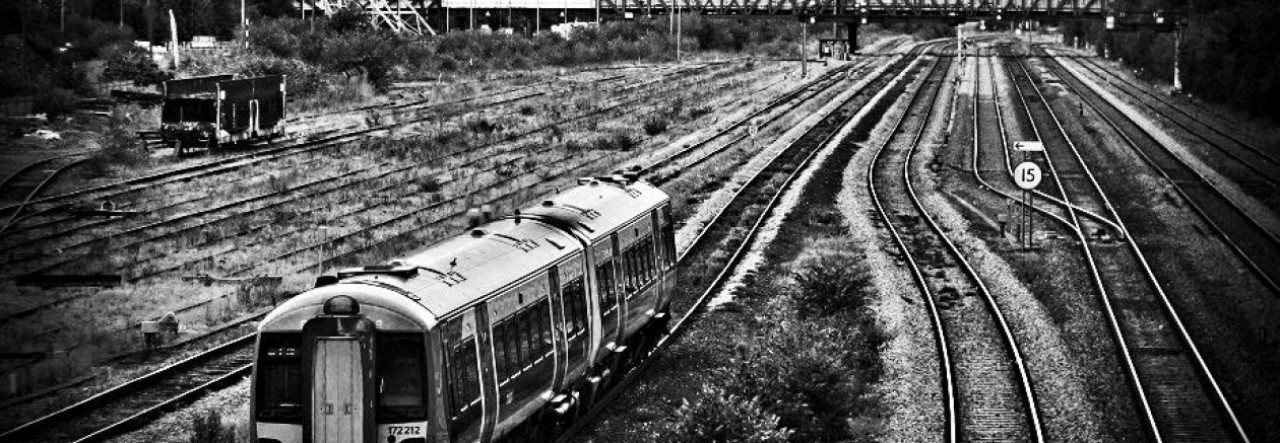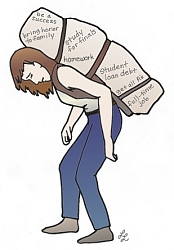For longer than I can remember I have argued that the touchstone of liberation theology needs to be re-framed in the global ‘North’ because we just can’t credibly compare the relative poverty of people in a country like the UK to the absolute poverty of many countries in the global ‘South’. And so I have argued that the conviction that the God of the Hebrew and Christian Scriptures has a ‘preferential option for the poor’ [let’s be honest we mean ‘bias to the poor’] should be reimagined in countries like the UK and the US as a ‘preferential option for the oppressed’. What I refer to in a less nuanced way as a ‘bias to the oppressed’. Such a re-framing allows us to site God on the side of groups of people who are oppressed on the basis of ethnicity, religion, sexuality and gender.
However over the last 12 months I’ve been having a re-think in light of the inexorable and dramatic return of deep rooted and death-dealing poverty at the gates of economic power in countries as wealthy at the UK. On the back of the financial crisis of 2010 the UK government has trumpeted its ‘austerity’ programme as the ‘only answer’, suggesting that ‘we are all in it together’, forgetting that a majority of the UK Government Cabinet are millionaires! Over the last three years we have witnessed the vicious return of levels of poverty not seen in the UK for half a century. The situation is arguably deeper and more desperate in the USA as a recent research project ‘Wealth inequality in America’ reveals.
The journalist Andreas Whitam Smith suggested in early December 2013 that ‘The defining problem of our age is going to be poverty.’ He’s right – Since 2010 the number of people being treated in UK hospitals for rickets (the disease of the poor) has doubled, 13 million people in the UK now have to survive on just over 50% of the average income, anywhere between 350,000 and 500,000 people in the UK now rely on food-banks to feed their families (up threefold between 2012-2013), more than 4.5 million people in the UK now struggle to survive on less than the recommended ‘Living Wage’ of £7.45 p/hour and almost half those caught in the ‘poverty trap’ are in paid work [paid so little they can barely get by]….The list could go on and on but I think the point is probably painfully clear….
On top of that we continue to be bombarded with stereotype and moralising – people are poor because they are ‘lazy’, ‘spend all their money on booze and fags’ , ‘cheat on the benefits’ and spend their days watching day-time TV…..The recent Ecumenical ‘Joint Public Issues Team’ report ‘Truth and Lies about Poverty’ gives the lie to such stereotypes. Poverty is created as a result on unjust social, economic and political policy and practice. It is not ‘natural’ or an ‘accident’.
In Luke 4 Jesus makes it plain that his mission is to ‘preach good news to the poor’. A blog is not the best forum for developing a detailed re-framing of Latin American Liberation Theology in a UK context but it has become increasingly obvious that such an endeavour is desperately needed. That means continuing to use the social capital that faith groups in marginalised communities still have – the job clubs, the lunch clubs, the advice centres, the youth projects, the credit unions, the involvement in ‘Living Wage’ campaigns, the engagement in community organising, the befriending, the campaigning……all are vital signs of the Kingdom of justice that Jesus embodies in the Gospels. But more is needed – A ‘conversion to the poor’ as Gustavo Gutierrez [the great pioneer of liberation theology] put it – a reinvention of Church as radical, agitating social movement and a rediscovery of the prophetic role of the preacher, the teacher, the pastor, the priest.
I work as a Lecturer in Theology in a University context. The job is rewarding, challenging and exciting but so often it feels disengaged from the struggle to build a just and equal society and more concerned about targets, research grants and seemingly disengaged academic debate. It is not only the Church that needs to be converted but the academy too for as the British urban theologian Kenneth Leech puts it – theology is not neutral – it ‘either oppresses people or it helps to liberate them.’ In our increasingly poverty stricken cities and towns and desperately unequal society I know what I’m voting for! How about you?


Thanks Chris, I would just want to add that it is the “normalisation” of the circumstances – and their causes – that I find so disturbing. That certain conditions can just be accepted as “the way things are and have to be” etc. I still think we need a public debate, not just about the scale and causes of this, but about what sort of society is now deemed to be acceptable, how that is to be achieved, and how this requires a different understanding of the global approach to economics that has got us here in the first place. If those of faith simply respond through pastoral care to those in need, it looks as though we are “jumping on the bandwagon” and embracing a renewed role in welfare provision. We must do more than this and employ our stake in the process as a base from which to launch a more fundamental debate about a different and more humane/human future.